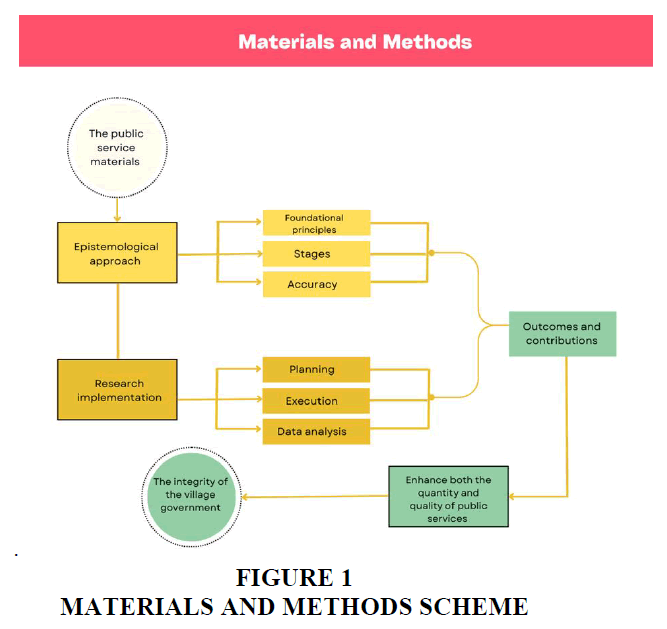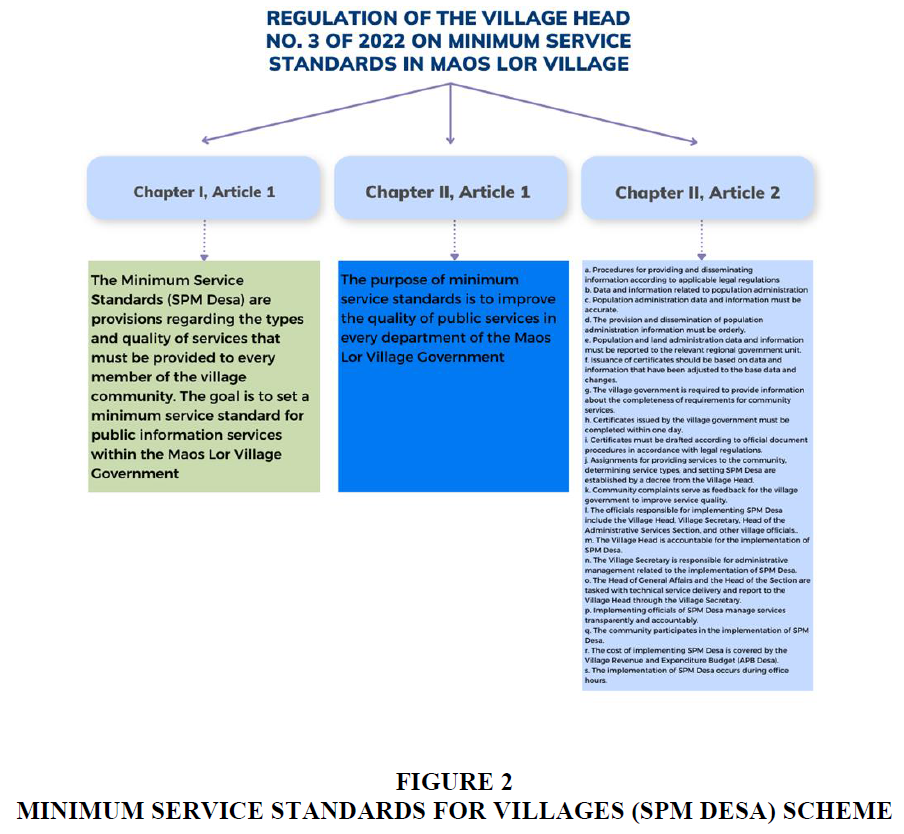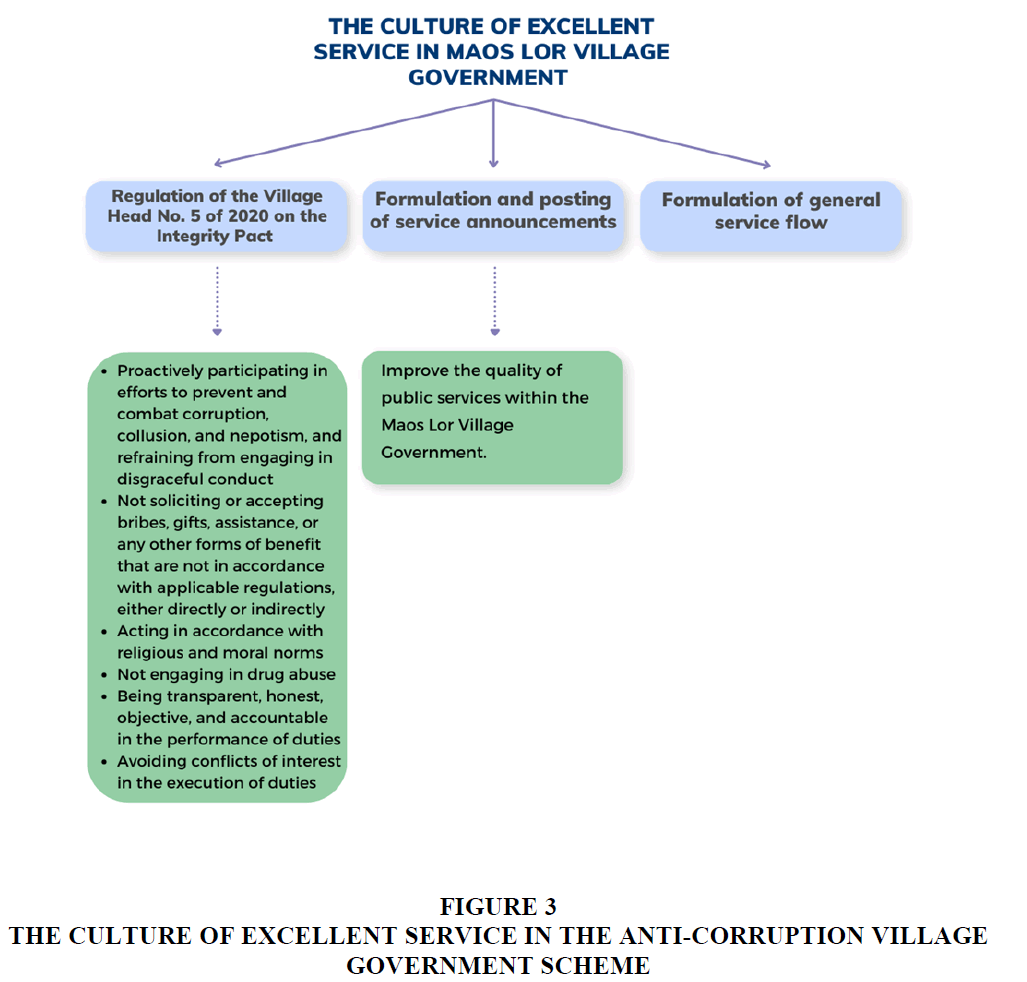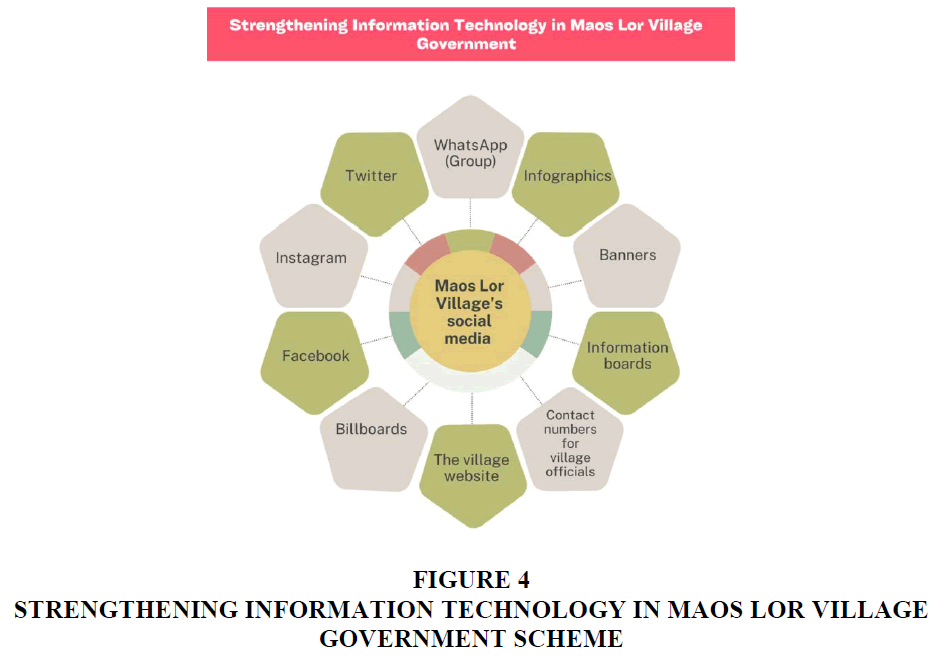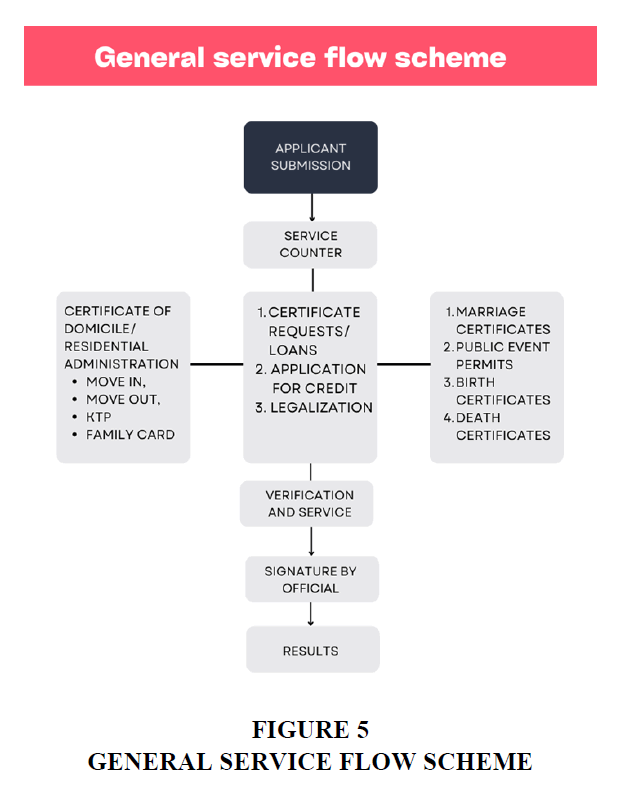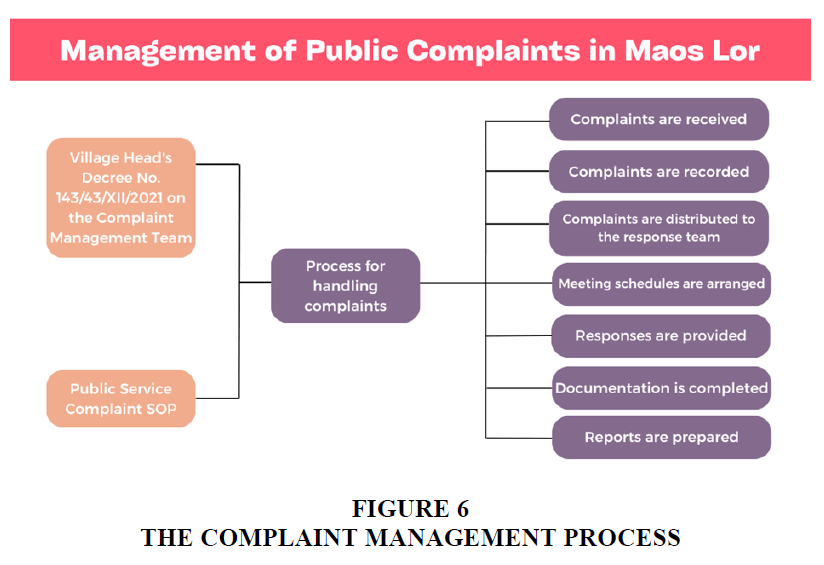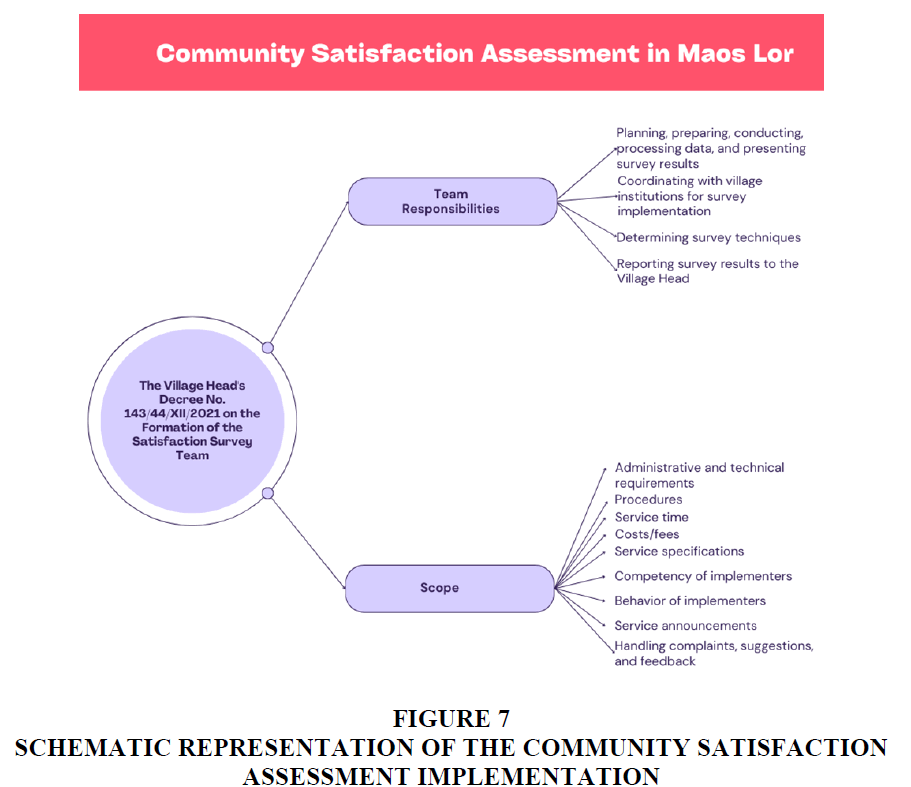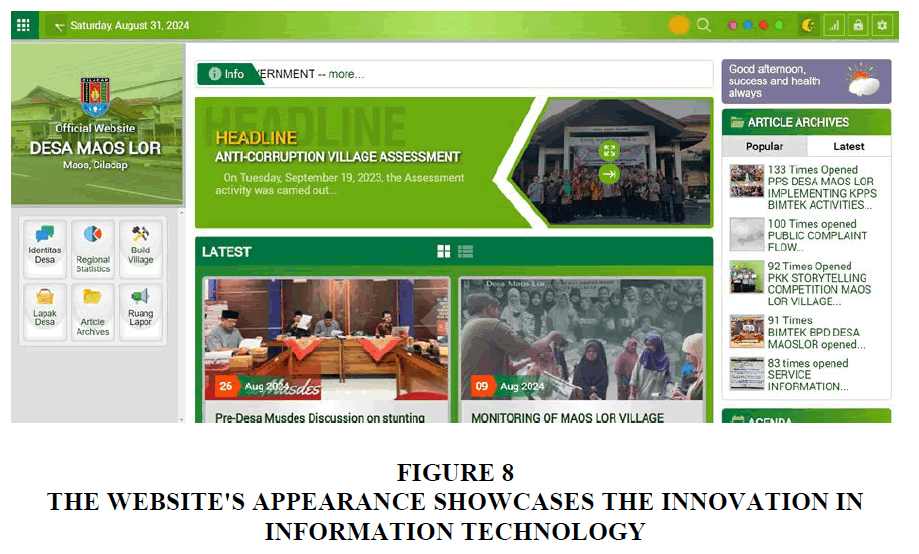Research Article: 2025 Vol: 28 Issue: 1
The Epistemological Approach To Implementing Public Service Quality Improvement For Strengthening The Integrity Of Anti-Corruption Village Governments
Sumaryati, Ahmad Dahlan University, Indonesia
Suyitno, Ahmad Dahlan University, Indonesia
Fithriatus Shalihah, Ahmad Dahlan University, Indonesia
Ahmad Ridwan, Yogyakarta State University, Indonesia
Citation Information: Sumaryati, Suyitno, Shalihah, F., Ridwan, A. (2025). The epistemological approach to implementing public service quality improvement for strengthening the integrity of anti-corruption village governments. Journal of Legal, Ethical and Regulatory Issues, 28(1), 1-18.
Abstract
Amid several corruption cases in the village government sector, some anti-corruption villages commit in maintaining and cultivating integrity. To ensure this commitment, strengthening their integrity must be done sustainably. This effort is supported by implementation of Integrity Zone Development Policy (KPZI), which includes improving public service. This study examines the foundations, stages, and accuracy of public service implementation in the anti-corruption village of Maos Lor, Cilacap, Indonesia. Research subjects included the village head, consultative body, village officials, the Anti-Corruption Village Team, community leaders, and women representatives. Data was collected through interviews and documentation, and analysed using reduction, classification, display, and conclusion techniques. The key elements are Village Head’s Decree on Minimum Service Standards, Integrity Pact for Village Officials, Complaint Standard Operating Procedures (SOPs), Management Teams, and Community Satisfaction Survey Teams. The stages include formulating and socializing the Decree, creating SOPs, developing technical flows, establishing supporting social media, implementing policies, conducting evaluations and reporting. The foundation for improving public services is well-aligned with community realities, offering easy and quick services, and boosting the motivation and enthusiasm of both village officials and the community. The findings of this study contribute to the ongoing strengthening and enhancement of the integrity of anti-corruption villages.
Keywords
Integrity, Village Government, Public Service, Integrity Zone.
Introduction
Village fund policies in Indonesia not only accelerate development but also have the potential to cause deviations and violations (Sugiharti et al., 2021; Yakadewa, 2023). In this context, village government officials integrity is crucial. The causes of corruption in village funds include weak integrity among village officials (Firmansyah & Syam, 2021; Winata et al., 2023), overlapping technical guidelines, rigid regulations on the use of village funds, and insufficient financial management skills among officials (Satriajaya et al., 2017). Integrity is essential for aiming officials professionalism in their duties (Putra, 2021; Ubaidillah, 2019) and is considered a hallmark of a healthy mindset (Packalen & Rowbotham, 2022; Sabriana, 2022). Communities need officials with integrity to build a prosperous society.
The Indonesian government has established the KPZI, which regulated under the Minister of Administrative and Bureaucratic Reform Regulation No. 90 of 2021 to strengthen integrity (Kapti et al., 2019; Burhanudin, 2022; Sumaryati et al., 2020). It includes the guidelines for integrity zones development towards a corruption-free area, as well as clean and serving bureaucracy in government agencies. KPZI elements include change management programs, administrative arrangements, human resources management, strengthening oversight, performance accountability, and concrete public service quality improvement. It establishes the integrity-focused institutions, especially those that directly interact with public, including anti-corruption villages. Anti-corruption villages anticipate and address potential corruption within village governments. The Anti-Corruption is awarded when the village government consistently strengthens governance, oversight, public service quality, community participation, and local wisdom. The aspects of KPZI and Anti-Corruption Villages supports the establishment of Anti-Corruption Village Governments.
Public service is the culmination of change management, administrative arrangements, human resources management, oversight strengthening, and performance accountability. High-quality public service reflects adherence to regulations, competent human resources, effective oversight, and maintained performance accountability (Ridwan & Sudrajat, 2020; Osborne, 2020). Public service directly affects the community and assesses the performance of village governments. Ministerial Regulation No. 90 of 2021 outlines three targets for public services quality improvement: making government services faster, cheaper, safer, and more accessible; increasing the number of service units that meet the standards; and improving the community satisfaction index.
This article discusses the improvement of public services in anti-corruption villages through an epistemological approach, which is the study of knowledge (Suprianto, 2024; Aflisia et al., 2021), including its origins, structure, and truth (Boon & Van Baalen, 2019). It examines the sources, stages, and accuracy of its implementation. The standards of accuracy include the consistency of policies, alignment of policy content with reality, utility, and changes in public thinking and behaviour (Anisa et al., 2022). This study contributes to the ongoing enhancement of anti-corruption villages integrity.
Materials and Methods
This study examined the foundation, stages, and accuracy of implementing public service improvements in Maos Lor Village, Cilacap, with a focus on service standards, excellence in service culture, complaint management, community satisfaction, and information technology. Information on public service implementation was collected through interviews with the Village Head, Village Consultative Body (BPD) Chairperson, BPD members, and officials. Interviews with community representatives explored the accuracy of public service quality improvements. Supporting documents were obtained from the Maos Lor village website.
This study employed qualitative descriptive approach, specifically phenomenology, and focused on the implementation of public service improvements in Maos Lor Village Government, recognized as one of the top anti-corruption villages at the national level in 2023. The research stages included planning (coordination, obtaining permit, and instrument preparation), data collection (in-depth interviews and documentation), and data analysis (reduction, classification, interpretation, and hermeneutics). Figure 1 shows the research material and methods scheme (Figure 1).
Results
Maos Lor Village has been designated as an Anti-Corruption Village by the Central Java Provincial Government since 2021. Continuous mentoring has been carried out by the Central Java Regional Inspectorate and the Indonesian Corruption Eradication Commission. As a result, in 2023, Maos Lor Village achieved the rank of the third-best Anti-Corruption Village nationally. One aspect of the assessment in this program is the strengthening of public services.
Service Standards in the Anti-Corruption Village Government
The service standards in Maos Lor Village refer to the Village Head Regulation No. 3 of 2022 on Minimum Service Standards. The Minimum Service Standards for Villages (SPM Desa) are provisions regarding the types and quality of services that must be provided at a minimum to the village community, Chapter I, Article 1. SPM Desa aims to establish minimum service standards for public information services, while its objective is to enhance the quality of public services, Chapter II, Article 1 and 2. The SPM Desa consists of 19 items as shown in (Figure 2).
Excellence in Service Culture in the Anti-Corruption Village Government of Maos Lor
The culture of excellent service in the Anti-Corruption Village Government is established through Village Head Regulation, the Integrity Pact, service declarations, and the formulation of general service procedures, as illustrated in Figure 3. The Integrity Pact, governed by Village Head Regulation No. 5 of 2020, commits officials to adhere to regulations, as well as to avoid corruption, collusion, and nepotism. The Integrity Pact aims to strengthen the commitment to preventing corruption, promote openness and honesty, and enhance the quality and accountability of public services (Article 3 of Village Head Regulation No. 5 of 2020). All village government officials are required to sign the Pact, pledging to be proactive, reject bribery, act transparently. The signing is conducted by Village Head and BPD in the presence of Sub-District Head during the appointment or handover of duties. The Pact is evaluated by the Village Secretary annually (Figure 3).
The Service Declaration outlines a commitment to provide services according to established standards and penalties. It is signed by the Village Head and displayed in the village office, the Head of Hamlet’s office, and on the Maos Lor Village Government's website and social media platforms such as Instagram, Facebook, and Twitter.
Maos Lor Village has implemented various innovations in public information to enhance transparency and ease of access to services. These innovations include creating leaflets and banners that clearly describe the process for various documents, including ID cards, certificates of eligibility for the poor (SKTM), birth certificates, letters for relocation, marriage, and divorce. Besides, the reports are disseminated through infographics, banners, and posters displayed in the village office and village website (Figure 4).
Other innovations include banners, which provide information on requirements, processing times, costs, and complaint management, as well as infographics about the addresses of eleven Posyandu (integrated service post) centres and health facilities in area. Figure 5 shows the process from the applicant to the final outcome. A list of important contact numbers is also provided, including those for the Village Head, Babinsa (Village Military Non-Commissioned Officer), Bhabinkamtibmas (Community Police Officer), Village Midwife, Sub-District Head, Danramil (Military Sub-District Commander), Police Sector, and Maos Health Centre. Besides, the village's anti-corruption program emphasizes that no corruption occurred over the past three years (Figure 5).
Complaint Management in the Anti-Corruption Village Government of Maos Lor
To ensure excellent, transparent, and accountable service, the Village Head Decree No. 143/43/XII/2021 establishes a Complaint Management Team, consisting of a chairperson and five members. Their responsibilities include managing public complaints, recording, responding to, and addressing elements of public service. This underscores the importance of formulating the Standard Operating Procedures (SOP) for Community Complaints for Maos Lor Village Government, which is approved by the Village Head on December 24, 2021. This SOP covers the complaint management desk, the components and procedures for complaints, the management process, and the responsibilities of liaison officers. Community members have the right to submit suggestions and complaints through various channels, including face-to-face meetings, a complaint box, phone, email (dsmaoslor@gmail.com), and the website (https://maoslor-cilacap.desa.id/). Complaints are received, recorded, distributed, and scheduled for meetings if necessary. The final report includes a summary of complaints with information such as date, complainant's identity, channel, issue, follow-up, status, and evidence of follow-up, and is submitted to the Village Head. The complaint management process is illustrated in (Figure 6).
Community Satisfaction Assessment of Services
The Maos Lor Village Government offers 21 types of public services and conducts a community satisfaction survey twice a year to improve service quality, which established under Village Head Decree No. 143/44/XII/2021. This satisfaction survey team consists of seven members: one chairperson, one secretary, one coordinator, and four members. Their responsibilities include planning, preparing, executing, processing data, presenting survey results, coordinating with village institutions, determining the techniques, and reporting the results to the Village Head.
The community satisfaction survey at Maos Lor Village covers administrative requirements, technical aspects, procedures, service time, costs, service products, staff competency and behaviour, service announcements, and handling of complaints and feedback. The survey instrument is a questionnaire with randomly selected responders, then the data is collected in written and electronic formats (QR Code, Google Form).
The results of the public service survey for the second semester of 2022 showed a conversion score of 83.1, with a service quality rating of B and an average performance rating of "satisfied." In the first semester of 2023, the conversion score increased to 91.01, with a service quality rating of A and an average performance rating of "very satisfied." These survey results were analysed and addressed accordingly. For example, the aspect of compliance with requirements received a score of 3.64 (good), and follow-up actions included socialization and updates on social media. The ease of procedures (with a score of 3.51) was addressed by developing a streamlined service process. The aspect of service speed (with a score of 3.44) was improved by adding facilities and enhancing staff punctuality. Figure 7 shows the community satisfaction assessment scheme (Figure 7).
Maos Lor Village Government provides public services through direct communication at various levels, including the Village Government, Padukuhan (hamlet), RT (neighbourhood associations), and RW (community associations). Services are offered through social media platforms such as Facebook, Twitter, Instagram, and WhatsApp (group chats), and infographics, banners, leaflets, billboards, and information boards. The official website (https://maoslor-cilacap.desa.id) offers comprehensive information of village profiles, regulations, budget reports, complaints, and community satisfaction surveys. The website's appearance showcases the innovation in information technology (Figure 8).
Discussion
Here are the discussion public service improvements in Maos Lor Village from an epistemological perspective.
Foundation for Implementing Public Service Improvement Policies in the Maos Lor Village Government
The implementation of public service improvement policies in Maos Lor Village refers to several regulations, including the Village Head Regulation No. 3 of 2022 on Minimum Service Standards, Regulation No. 5 of 2020 on the Integrity Pact, and Decrees No. 143/43/XII/2021 and No. 143/44/XII/2021 on the Complaint Management Team and Community Satisfaction Survey. The leaders' understanding that leadership is a divine trust reinforces the execution of public service improvement policies in Maos Lor Village. This is grounded in legal regulations and religious teachings as a form of legitimate leadership responsibility. Every policy and activity must be based on concepts whose accuracy is beyond doubt. The public service improvement policy is implemented according to regulations, with high legality, accountability, and anti-corruption principles. The local government has demonstrated high accountability in executing these policies based on applicable regulations and have legal validity. Accountability supports the realization of good and clean governance (Arsik & Lawelai, 2020).
Stages of Strengthening Public Services in the Maos Lor Village Government
The review of the stages in strengthening public services aims to ensure that each phase is executed correctly. This demonstrates process effectiveness, adheres accountability principles, and prevents corrupt behaviour. The following section provides an analysis of the stages involved in each aspect of strengthening public service.
Table 1 shows the stages of strengthening public services including planning, implementation, evaluation, and follow-up. Each aspect of strengthening public services is carried out in a continuous sequence (Dewi et al., 2021). This orderly and logical approach reflects the Maos Lor Government’s commitment to transparency, accountability, and diligence. The formulation of the SOP for Minimum Service Standards aligns with the Regulation of the Minister for Administrative and Bureaucratic Reform No. 35 of 2012 on SOP Preparation Steps. Consistent evaluation and follow-up indicate that the strengthening of services complies with the Regulation of the Minister for Administrative and Bureaucratic Reform No. 90 of 2021. Utilizing information technology to enhance the quality of public services is a crucial step. Information technology can improve service quality and facilitate service delivery (Nasikhah, 2019). The successful improvements is evident in faster service delivery, reduced costs, increased safety, better accessibility, a higher number of service units meeting national or international standards, and improved public satisfaction. This demonstrates that the Maos Lor Village Government has effectively strengthened its integrity (Table 1).
| Table 1 Stages of Each Aspect of Strengthening Public Services | ||
| No | Aspect of Strengthening Public Service | Stages |
| 1 | Formulation of Minimum Service Standards | Review of higher regulations, formation of a team to draft the SOP for Minimum Service Standards, formulation, socialization, implementation, evaluation, and follow-up of the SOP for Minimum Service Standards. |
| 2 | Culture of Excellent Service | Signing of the integrity pact, formulation and posting of the "Service Declaration" at the village office and community centres, creation of public information media (banners, leaflets, and posters), socialization, and posting of the Service Declaration. |
| 3 | Public Complaints | Preparation: Formation of the Complaints Management Team, drafting and approval of the Complaints SOP by the Village Head, and socialization of the complaint process. Implementation: Submitting complaints via complaint boxes, social media, phone, email, or the village website, handling includes recording complaints, distributing to the team, scheduling meetings, and providing responses. Evaluation: Compilation of reports. |
| 4 | Public Satisfaction Survey | Planning: Formation of the team, scope definition, survey technique selection, creation of survey links, and coordination with the village. Implementation: Collection of data either in written or electronic form (QR scan, Google Form), processing, and presentation of results. Evaluation: The survey team reports results to the village government and formulates follow-up actions. The survey method uses written questionnaires or Google Forms. |
| 5 | Information Technology Innovations | Planning: Appointment of an IT manager. Implementation: Creation of a website and social media presence, and routine content preparation and updates. |
Accuracy of Public Service Improvement Implementation
In epistemology, examining the truth of knowledge and its objects is crucial. Proving the validity of knowledge, theories, policies, and technologies is a primary goal for scientists and policymakers. When proven true, knowledge and technology are more widely adopted and contribute to development and, in religious contexts, enhance goodness and rewards.
There are four types of truth in epistemology: coherence, correspondence, pragmatic, and performative. Coherence shows the consistency or harmony among things, events, theories, concepts, or policies (Sher, 2021). Correspondence refers to alignment the content of events, theories, concepts, or policies with reality. Pragmatic truth is when things, events, theories, concepts, or policies are beneficial to humans (Capps, 2020). Performative truth is when things, events, concepts, theories, or policies can change human thinking, intentions, enthusiasm, or behaviour (Yumesri & Syukri, 2024).
Table 2 shows the four aspects of strengthening public services exhibit coherence, as they align with the implementation regulations for public service enhancement. Village regulations are consistent with regional regulations and higher-level regulations. There are no conflicts among the regulations used. In this case, the village government has applied the principle of lex superior derogat legi inferiori, which means that lower legal norms must not contradict higher ones (Achir, 2020). This indicates that the village government has adhered to one of the anti-corruption principles, namely accountability (Sumaryati, 2020) (Table 2).
| Table 2 Analysis of Coherence Accuracy in Public Service Improvement | ||
| No | Aspect of Public Service | Coherence of Truth |
| 1 | Formulation of Minimum Service Standards | Consistency among articles in the SOP for Minimum Service Standards. For example, Article 14 on the officials responsible for village minimum service standards aligns with Articles 15-19, which describe the duties of each official. |
| 2 | Culture of Excellent Service | The signing of the integrity pact is in accordance with Article 19 of the SOP for Minimum Service Standards outlined in Regulation of the Village Head No. 3 of 2022 on Minimum Service Standards in the Maos Lor Village Government, dated May 3, 2022. |
| 3 | Public Complaints | Alignment between the Decree of the Village Head of Maos Lor, Maos District, Cilacap Regency No. 143/43/XII/2021 concerning the Complaint Management Team, dated December 14, 2021, and Article 20 of Regulation of the Village Head of Maos Lor No. 3 of 2022 on Minimum Service Standards in the Maos Lor Village Government for 2022. |
| 4 | Public Satisfaction Survey | Consistency between the Decree of the Village Head of Maos Lor, Maos District, Cilacap Regency No. 143/44/XII/2021 on the Formation of the Public Satisfaction Survey Team and Article 15 of Regulation of the Village Head of Maos Lor No. 3 of 2022 on Minimum Service Standards in the Maos Lor Village Government for 2022. |
| 5 | Information Technology Innovations | - |
Table 3 shows that the Village Head's Decree, SOP for Minimum Service Standards, Complaint SOP, Integrity Pact, Service Declaration, satisfaction survey instruments, and technological innovations are adapted to the sociological and cultural conditions of the community. The policy for strengthening public services takes into account tendencies for corruption among leaders, lack of service information, and the use of social media by the community. This aligns with the concept that effective regulations or policies are those derived from community needs (Ashsyafa et al., 2024). The developed technologies are in line with the use of mobile phones by the community (Table 3).
| Table 3 Analysis of Correspondence Accuracy in Public Service Improvement | ||
| No | Aspect of Public Service | Correspondence Truth |
| 1 | Formulation of Minimum Service Standards | Article 6, Paragraph 2, which mentions the dissemination of information through meetings and the website https://maoslor-cilacap.desa.id/, corresponds with the facts of village deliberations, neighbourhood meetings, and social media. |
| 2 | Culture of Excellent Service | The Integrity Pact is required to address the reality that leaders tend to be corrupt. |
| 3 | Public Complaints | Correspondence between the content of the Complaint SOP and the reality of limited knowledge about the complaint submission procedures, and the fact that complaint handling is not yet systematic. |
| 4 | Public Satisfaction Survey | Correspondence between the scope of the public satisfaction survey and the main aspects of excellent public service. The aspects of excellent public service are those expected by the community. |
| 5 | Information Technology Innovations | Correspondence between the content of various technological innovations in public service and the reality that people still often inquire about the procedures and requirements for various certificates. |
Based on Table 4, strengthening of public services has pragmatic validity, which is beneficial for village government and community. Minimum service standards assist the Maos Lor Village Government in providing public services. The signing of integrity pact is highly beneficial for ensuring the officials commitment to performing their duties according to regulations and avoiding corruption, collusion, and nepotism (Kadir & Laela, 2023). The direct benefits include more pleasant, faster, and transparent public services at no cost, and increased ethical behaviour among village officials. The Service Declaration reminds village officials of their obligations and helps to control their performance. Various forms of technological innovation in public services are beneficial to the community, such as facilitating and streamlining the official documents process. Besides, services become easier, faster, and more transparent (Hapzah et al., 2020). Complaint reports are useful for evaluating the complaint handling process and formulating follow-up actions. The pragmatic use of survey results allows the Village Government to analyse causes and plan follow-up activities to enhance community satisfaction (Kuziemski & Misuraca, 2020). For the community, the benefit lies in the follow-up improvements to services. Technology aids the village government in socialization, communication, and transparency, while the community can quickly receive and respond to information (Lapuente & Van de Walle, 2020). Information technology also increases community participation in village development (Kuziemski & Misuraca, 2020) (Table 4).
| Table 4 Analysis of Pragmatic Accuracy in Public Service Improvement | ||
| No | Aspect of Public Service | Pragmatic Truth |
| 1 | Formulation of Minimum Service Standards | As a basis for organizing and evaluating public services |
| 2 | Culture of Excellent Service | The integrity pact strengthens the commitment of village officials to provide fast, transparent, and cost-free services. The "Service Declaration" reminds officials of their duties and allows the community to oversee their performance. Technological innovations make services easier, faster, and more efficient and accountable. |
| 3 | Public Complaints | The ease of the community in submitting complaints and suggestions and the ease for the management team in handling and providing solutions for the community |
| 4 | Public Satisfaction Survey | As a basis for analysing causes and planning follow-up activities to increase public satisfaction |
| 5 | Information Technology Innovations | Social media facilitates communication and government transparency and enables the community to receive and respond to information quickly. |
Strengthening public services, as outlined in Table 5, fulfils performative truth, which can change the mindset, attitudes, and actions of village government officials and community. The Integrity Pact influences the Maos Lor Village officials to approach their duties diligently. This aligns with Modise et al.'s assertion that integrity pacts affect government officials' commitment to avoiding corruption (Modise & Modise, 2023). The Service Declaration has made village officials more meticulous in their thinking and behaviour, while the community has become more active in village development (Hapzah et al., 2020). Technological innovations in public service have also changed the community's mindset. The community now has greater trust in government officials performance and is more active in responding to information from the village government (Prihartono, 2023). Public complaints have highlighted the importance for community and village governments to handle issues with promptness, accuracy, and transparency. Satisfaction surveys play a crucial role in shaping the attitudes and behaviours of village officials (Osborne et al., 2020). Thus, it has transformed both official and community perspectives (Table 5).
| Table 5 Analysis of Performative Accuracy in Public Service Improvement | ||
| No | Aspect of Public Service | Performative Truth |
| 1 | Formulation of Minimum Service Standards | The village government has become more meticulous in providing public services. |
| 2 | Culture of Excellent Service | The Integrity Pact has changed the mindset of the Maos Lor Village officials to be more meticulous and professional. The Service Declaration enhances the vigilance of village officials, while technological innovations increase public trust, responsiveness, and active participation in development. Village officials are also beginning to adopt a technology-based approach in their work. |
| 3 | Public Complaints | It opens the minds of both the community and the village government to the idea that any issues must be reported and addressed through quick, accurate, and transparent procedures. |
| 4 | Public Satisfaction Survey | The attitude and behaviour of village officials in serving the community have become faster and more pleasant. |
| 5 | Information Technology Innovations | The community pays closer attention to the performance of the village government. |
Conclusion
Strengthening public services in Maos Lor Village, an anti-corruption village, addresses three epistemological aspects: foundation, stages, and accuracy. The foundation for this strengthening includes Village Head Regulation No. 3 of 2022 on Minimum Service Standards, Regulation No. 5 of 2020 on the Integrity Pact, Decree No. 143/43/XII/2021 on the Complaint Management Team, and Decree No. 143/44/XII/2021 on the Community Satisfaction Survey Team. The activities involved in strengthening public services are as follows: (1) cultivating excellent service through the signing of the Integrity Pact and posting service announcements; (2) conducting community satisfaction surveys; (3) innovating information dissemination through the village government website, leaflets, banners, infographics, and accessible contact details. The stages of strengthening public services include formulating and socializing the Village Head’s Decree, creating SOPs, developing technical flows, establishing supporting social media, implementing policies, and conducting evaluations and reporting. Coherence accuracy is demonstrated by the alignment between all Village Head Decrees and Ministerial Regulation No. 90 of 2021 on KPZI implementation guidelines. Correspondence accuracy is demonstrated by how well the Village Head’s Decrees align with community needs. Pragmatic accuracy is shown through the practical benefits of these decrees and related policies, along with supportive social media. Performative accuracy is reflected in the increase in community satisfaction, with score improving from 83.1 (B rating) in the second semester of 2022 to 91.01 (A rating) in the first semester of 2023.
References
Achir, N. (2020). Anotasi normatif terhadap peraturan daerah tentang transparansi. Jambura Law Review, 2(1), 83–100.
Indexed at, Google Scholar, Cross Ref
Aflisia, N., Alie, A. A., & Haryanti, E. (2021). Critical study of the modern science epistemology. Asian Journal of Multidisciplinary Research & Review (AJMRR), 2(1), 1–21.
Anisa, F. V., Fitrisia, A., & Ofianto, O. (2022). Ilmu administrasi ditinjau dari aspek espitemologi. Jurnal Pendidikan dan Konseling (JPDK), 4(6), 4666–4671.
Arsik, S. F., & Lawelai, H. (2020). Penerapan akuntabilitas, efektivitas, dan transparansi dalam mewujudkan good governance: studi pemerintah desa banabungi. Jurnal Studi Ilmu Pemerintahan, 1(1), 1–7.
Indexed at, Google Scholar, Cross Ref
Ashsyafa, Z. P., Sari, W., Rahayu, P. A., Dikrurahman, D., & Permana, D. Y. (2024). Dynamics of interaction between law and socio-culture in the context of a multicultural society. International Journal of Social Service and Research, 4(04), 1171–1178.
Boon, M., & Van Baalen, S. (2019). Epistemology for interdisciplinary research–shifting philosophical paradigms of science. European journal for philosophy of science, 9(1), 16.
Burhanudin, A. A. (2022). Peran perguruan tinggi dalam penanaman dan penguatan pendidikan karakter dan anti korupsi. Salimiya: Jurnal Studi Ilmu Keagamaan Islam, 3(4), 137–149.
Capps, J. (2020). A common-sense pragmatic theory of truth. Philosophia, 48(2), 463–481.
Dewi, N. L., Gunawan, Y., Mangunsong, S., & Meiliana, Y. (2021). Pengaruh sistem pengendalian internal dan budaya organisasi terhadap kualitas pelayanan publik berkelanjutan. Jurnal Manajemen Maranatha, 20(2), 99–106.
Indexed at, Google Scholar, Cross Ref
Firmansyah, V. Z., & Syam, F. (2021). Penguatan hukum administrasi negara pencegah praktik korupsi dalam diri pemerintahan Indonesia. Integritas: Jurnal Antikorupsi, 7(2), 325–344.
Hapzah, S. N., Rianto, B., & Tamrin, M. H. (2020). Tata kelola inovasi pelayanan publik: dimensi kelembagaan, aktor kebijakan dan masyarakat. Publisia (Jurnal Ilmu Administrasi Publik), 5(2), 153–164.
Kadir, A., & Laela, F. I. (2023). Prevention of corruption crimes through the corruption-free area integrity zone program at state offices and institutions. International Journal of Accounting, Management, Economics and Social Sciences (IJAMESC), 1(4), 389–402.
Kapti, P. T. E., Kamil, M., & Salahudin, S. (2019). Implementation of the integrity zone development program towards a corruption-free area and a serving clean bureaucracy region. Journal of Local Government Issues, 2(2), 134–148.
Kuziemski, M., & Misuraca, G. (2020). AI governance in the public sector: Three tales from the frontiers of automated decision-making in democratic settings. Telecommunications policy, 44(6), 101976.
Lapuente, V., & Van de Walle, S. (2020). The effects of new public management on the quality of public services. Governance, 33(3), 461–475.
Modise, J. M., & Modise, P. S. (2023). Improved public trust, integrity and good governance with respect to corruption. International Journal of Innovative Science and Research Technology, 8(3), 2573–2583.
Nasikhah, M. A. (2019). Inovasi pelayanan transportasi publik berbasis teknologi informasi. Jurnal Inovasi Ilmu Sosial Dan Politik (JISoP), 1(1), 26–37.
Osborne, S. (2020). Public service logic: Creating value for public service users, citizens, and society through public service delivery. Routledge.
Packalen, K. A., & Rowbotham, K. (2022). Student insight on academic integrity. In Academic integrity in Canada: An enduring and essential challenge (hal. 353–375). Springer International Publishing Cham.
Prihartono, D. (2023). Penerapan pelayanan publik berbasis e-governance pada era revolusi industri 4.0. Kebijakan: Jurnal Ilmu Administrasi, 14(2), 192–201.
Putra, A. S. E. (2021). Pengaruh kompetensi dan integritas terhadap kinerja perangkat desa. JESS (Journal of Education on Social Science), 5(1), 24–35.
Indexed at, Google Scholar, Cross Ref
Ridwan, I. H. J., & Sudrajat, M. H. A. S. (2020). Hukum administrasi Negara dan kebijakan pelayanan publik. Nuansa Cendekia.
Sabriana, N. D. (2022). Korelasi hadis nabi dan integritas diri sebagai konsep kesehatan mental masyarakat melayu Riau. Tahdis: Jurnal Kajian Ilmu Al-Hadis, 13(1), 65–75.
Satriajaya, J., Handajani, L., & Putra, I. (2017). Turbulensi dan legalisasi kleptorasi dalam pengelolaan keuangan desa. Jurnal Akuntansi Multiparadigma, 8(2), 244–261.
Indexed at, Google Scholar, Cross Ref
Sher, G. (2021). In search of a substantive theory of truth.
Sugiharti, D. K., Muttaqin, Z., & Ramadhani, R. H. (2021). the supervision of village fund management to prevent corruption. Padjadjaran Jurnal Ilmu Hukum, 8(3), 356–378.
Sumaryati, S., Murtiningsih, S., & Maharani, S. D. P. (2020). Penguatan pendidikan antikorupsi perspektif esensialisme: penguatan pendidikan antikorupsi perspektif esensialisme. Integritas: Jurnal Antikorupsi, 6(1), 1–14.
Suprianto, H. (2024). Metafisika, epistemologi, metodologi, logika, etika, estetika, dan sejarah filsafat. Journal of Innovation in Teaching and Instructional Media, 4(2), 168–176.
Ubaidillah, M. (2019). Pengaruh tata kelola terhadap akuntabilitas pengelolaan dana desa dengan profesionalisme SDM dan integritas sebagai variabel intervening. JIFA (Journal of Islamic Finance and Accounting), 2(1), 15–27.
Indexed at, Google Scholar, Cross Ref
Winata, M. S. W., Kenneth, K., & Wijaya, W. (2023). KKN dalam budaya politik di Indonesia. PATRIOT: Jurnal Kajian Pancasila & Kewarganegaraan, 1(01).
Yakadewa, T. T. (2023). Identifikasi Resiko Kecurangan Dalam Pengelolaan Aset Desa (Studi Kasus di Desa Muaif Distrik Demta Ka bupaten Jayapura). (Doctoral dissertation).
Yumesri, Y., & Syukri, A. (2024). Teori kebenaran perspektif filsafat ilmu. Jurnal Genta Mulia, 15(2), 56–62.
Indexed at, Google Scholar, Cross Ref
Received: 01-Nov-2024 Manuscript No. JLERI-24-15462; Editor assigned: 02-Nov-2024 Pre QC No. JLERI-24-15462(PQ); Reviewed: 16-Nov-2024 QC No. JLERI-24-15462; Revised: 21-Nov-2024 Manuscript No. JLERI-24-15462(R); Published: 28-Nov-2024
